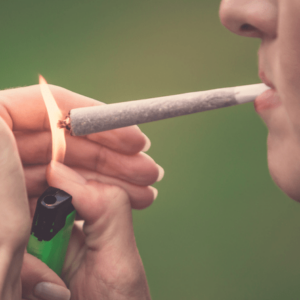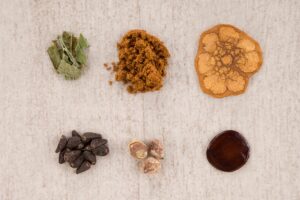About 40 million Americans are struggling with addiction. That’s more than the number of people with heart conditions, diabetes and cancer combined.
Whether it involves a physical dependence on heroin or a devastating dependence on gambling or shopping, addiction to substances and behaviors takes a toll on lives, jobs and families.
But a recent study published in the journal Frontiers in Psychology suggests that the cannabis compound cannabidiol (CBD) could help break the cycle of addiction thanks to its effects on the brain’s pathways for pleasure, reward and learning.
Addiction Has Complex Physical & Psychological Aspects
Addiction can take many forms and affect people very differently. One person can enjoy an alcoholic drink on a social occasion, while for someone else, that single drink is the first step toward an uncontrollable binge. Chocolate cake can be a fun occasional treat for some, but for people with eating disorders, it’s impossible to stop at just one slice.
Many substances can cause severe physical dependency and even death. But behaviors can be addictive, too.
Documented behavioral addictions can include:
- Gaming
- Shopping
- Gambling
Just about any activity that disrupts a person’s life and relationships can be considered an addiction.
Because addictions can have both physical and psychological aspects, and people experience addiction in many different ways, finding effective treatments can be challenging.
Recent research shows that addictions of various kinds are driven by compulsion, a complex circuit of responses that involve the brain’s mechanisms for:
- Pleasure
- Learning
- Problem solving
When the brain receives any kind of input that’s perceived as pleasant, it releases a surge of dopamine, one of a group of neurotransmitters called feel-good chemicals.
In response to the spike in dopamine, an area of the brain called the hippocampus stores a memory of the pleasant event. Then, another brain region called the amygdala encodes a response to that stimulus, signaling whether to repeat the experience.
For example, if a person drinks alcohol and likes it, the memory of that pleasurable moment can lead them to drink again.
But in addiction, other brain chemicals affect the pleasure-memory loop. Addictive substances cause a much more intense surge of dopamine than normal. That dopamine interacts with glutamate, an abundant neurotransmitter associated with learning and motivation.
This adds another component to the pleasure pathway—the drive to repeat whatever action produces the surge of dopamine. This leads to compulsion—the urge to repeat the pleasurable action again and again, even in the face of negative consequences.
Over time, the brain’s pathways can become distorted and overwritten with compulsive patterns, so that stopping the substance or behavior creates psychological stress. Many substances also hijack the body’s normal processes, so that stopping the drug causes the serious physical symptoms of withdrawal.
But many of the processes that create conditions for addiction are driven by the endocannabinoid system (ECS). And this is why CBD can intervene to break these cycles that lead to addiction.
RELATED: 6 WAYS CBD GOES TO WORK IN YOUR BODY
The Endocannabinoid System & Addiction
The human body is equipped with a system of receptors called the ECS. The ECS responds to cannabinoids, both the ones we produce naturally and ones we consume from outside sources, particularly those coming from the cannabis plant.
The ECS plays a major role in regulating many essential subsystems in the brain and body. Natural cannabinoids, cannabinoids from marijuana plus cannabinoids from a few other plant sources can activate ECS receptors. And ECS receptors are found on cells throughout the body and brain.
Cannabinoid receptors are abundant in the midbrain, home of the pleasure-reward-learning circuits that can also drive addiction. This explains why cannabis can calm anxiety and ease the symptoms of depression. It also explains why tetrahydrocannabinol (THC) can cause a pleasant, relaxing high.
And because CBD can affect not only these receptors, but also other processes that modulate addiction responses, research suggests that this cannabis compound could be an effective treatment for addictions to a wide range of substances, including:
- Opioids
- Nicotine
- Alcohol
- Prescription drugs such as benzodiazepines
How CBD Works in the Body to Address Addiction
Although the researchers reporting in Frontiers in Psychiatry aren’t entirely sure how it happens, CBD appears to reduce the craving for an addictive substance and block the development of new memories related to positive experiences with the substance.
CBD has a moderate effect on the endocannabinoid receptor CB1, which plays a role in the development of addictive behaviors. But CBD also seems to act on the systems that produce dopamine and serotonin, another of the feel-good chemicals.
CBD can also protect against the effects of high levels of glutamate, the excitatory neurotransmitter that boosts compulsion and craving. And it can also support the production of the natural cannabinoid anandamide, which produces positive, calming feelings. All of these effects combine to disrupt the pleasure-reward-memory loop involved in driving addictive behavior.
Can CBD Help With Opioid or Alcohol Addiction?
Opioid drugs, which include both illegal street drugs like heroin and prescription pain medications, pose a special challenge. The body and brain have a system of opioid receptors, too—and these receptors respond quickly and intensely to these drugs.
But opioid receptors also exist alongside natural cannabinoid receptors. This means that CBD may be especially useful in treating opioid addiction and the withdrawal symptoms that these drugs can cause.
Some research also suggests that CBD can be useful in treating alcohol addiction as well as limiting the damage alcohol can do to the brain and liver.
So far, research on CBD for addiction issues has been limited, and researchers acknowledge that more work needs to be done. But now studies are documenting the benefits of this cannabis compound in relieving the symptoms of many health conditions, including those that are caused by substance addiction.
In addition, CBD works with the body’s own systems. This means it can be a safer and more effective way to help address addictions of all kinds.
Photo credit: mis.uma/Shutterstock.com
Want to try CBD, but don’t know where to start? Shop our selection of high-quality, lab-tested CBD products and have them shipped to your door. And if you have questions about CBD, ask them and our community will answer.






